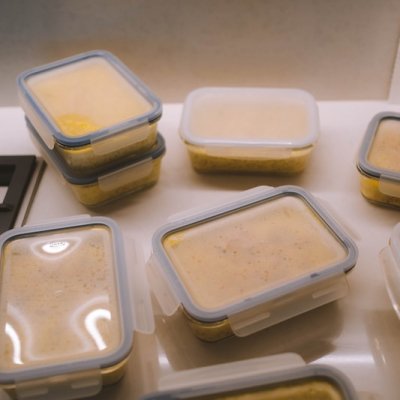flannels
- Dictionary
flannels(
flah
-
nuhlz
)A plural noun indicates that there is more than one person, place, thing, or idea.
1. (clothing)
a. la ropa interior térmica (F) (underwear)
(f) means that a noun is feminine. Spanish nouns have a gender, which is either feminine (like la mujer or la luna) or masculine (like el hombre or el sol).
I wore flannels under my ski pants to keep my legs warm.Llevé ropa interior térmica debajo del pantalón de esquí para mantener las piernas calientitas.
b. los pantalones de franela (M) (outerwear)
(m) means that a noun is masculine. Spanish nouns have a gender, which is either feminine (like la mujer or la luna) or masculine (like el hombre or el sol).
I always wore gray flannels to school.Siempre llevaba pantalones de franela grises para ir a la escuela.
flannel
A noun is a word referring to a person, animal, place, thing, feeling, or idea (e.g., man, dog, house).
2. (material)
a. la franela (F)
(f) means that a noun is feminine. Spanish nouns have a gender, which is either feminine (like la mujer or la luna) or masculine (like el hombre or el sol).
All the shirts in our store are made with synthetic fiber flannel.Todas las camisas en nuestra tienda están hechas de franela de fibra sintética.
Is your shirt made of corduroy or flannel?¿Tu camisa es de pana o franela?
a. la toallita (F)
(f) means that a noun is feminine. Spanish nouns have a gender, which is either feminine (like la mujer or la luna) or masculine (like el hombre or el sol).
I always clean my baby's gums with a warm flannel after each feeding.Siempre limpio las encías de mi bebé con una toallita tibia después de cada alimentación.
b. la manopla (F)
(f) means that a noun is feminine. Spanish nouns have a gender, which is either feminine (like la mujer or la luna) or masculine (like el hombre or el sol).
As her mascara ran, Lucy wiped her face with a flannel.Lucy se limpió la cara con una manopla ya que la máscara se le había corrido.
a. la palabrería (F)
(f) means that a noun is feminine. Spanish nouns have a gender, which is either feminine (like la mujer or la luna) or masculine (like el hombre or el sol).
The prime minister offered his usual flannel in response to the reporter's question.El primer ministro ofreció su palabrería habitual en respuesta a la pregunta del reportero.
b. el palabrerío (M) (South America)
(m) means that a noun is masculine. Spanish nouns have a gender, which is either feminine (like la mujer or la luna) or masculine (like el hombre or el sol).
Regionalism used in South America: Argentina, Bolivia, Chile, Colombia, Ecuador, Paraguay, Peru, Uruguay, and Venezuela
This article is just flannel. I wasted my time reading it!Este artículo es puro palabrerío. ¡Perdí mi tiempo leyéndolo!
An adjective is a word that describes a noun (e.g., the big dog).
5. (of flannel)
a. de franela
I love to sleep in cotton flannel sheets during the winter.Me encanta dormir con sábanas de franela de algodón en invierno.
An intransitive verb is one that does not require a direct object (e.g., The man sneezed.).
a. meter paja (colloquial) (Spain)
A word or phrase that is commonly used in conversational speech (e.g., skinny, grandma).
Regionalism used in Spain
Ted flannels all the time and people fall for it.Ted mete paja todo el tiempo y la gente se lo traga.
b. sanatear (colloquial) (River Plate)
A word or phrase that is commonly used in conversational speech (e.g., skinny, grandma).
Some politicians just flannel when they are interviewed.Algunos políticos solo sanatean cuando los entrevistan.
Examples
Machine Translators
Translate flannels using machine translators
Other Dictionaries
Explore the meaning of flannels in our family of products.
Random Word
Roll the dice and learn a new word now!
Want to Learn Spanish?
Spanish learning for everyone. For free.





















